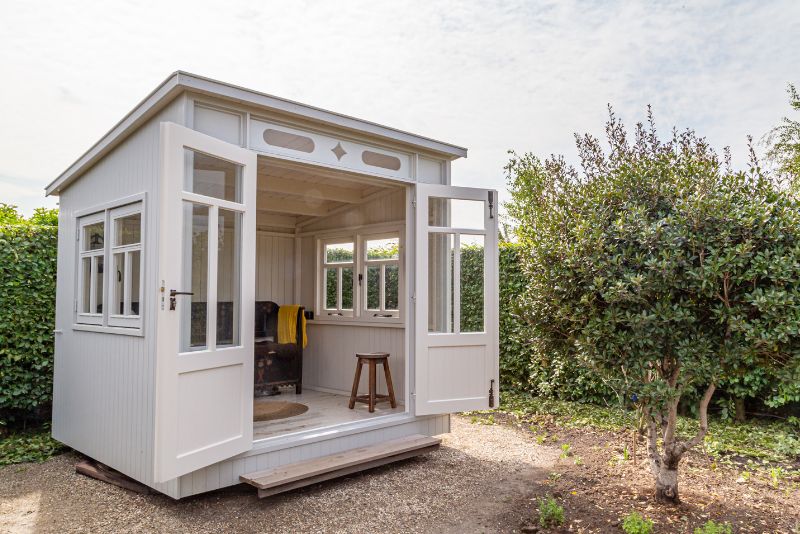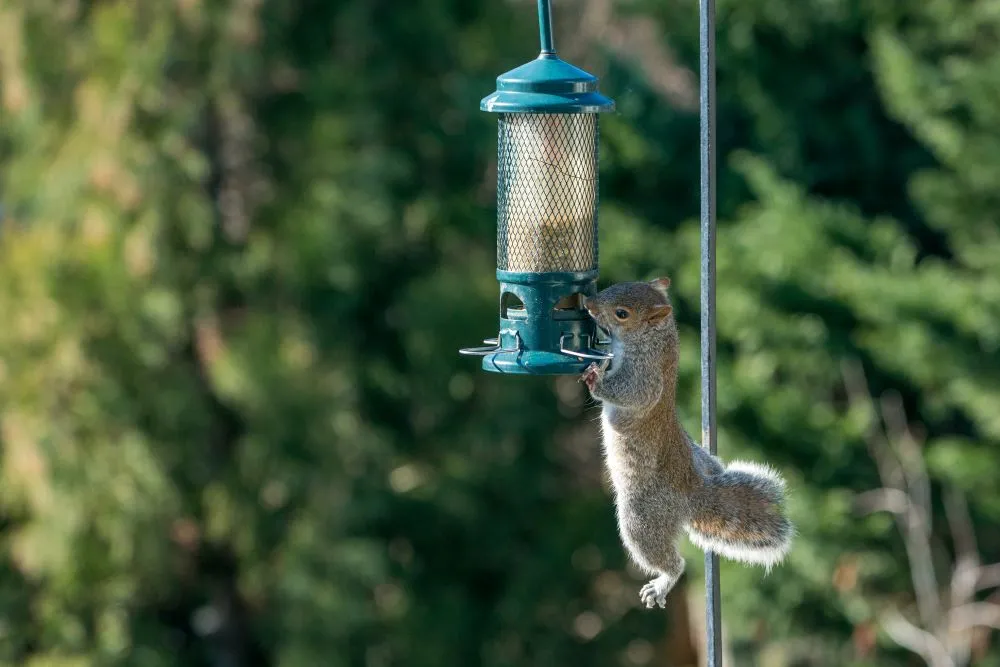Gardening laws you could be breaking

With the warmer weather soon upon us, there’s no better time to enjoy your garden. However, did you know you could be breaking the law from the comfort of your own home?
Maintaining a beautiful and harmonious garden isn’t just about planting flowers and mowing the lawn—it’s also about being a considerate and knowledgeable neighbour. So, before you pick up those pruning shears or start your next outdoor project, make sure you understand your obligations, and your rights, this summer.
1. Trimming overhanging branches
Pruning is essential for keeping trees healthy, but you may find branches from your neighbour’s trees coming over your side of the fence. You are allowed to trim these, but only up to the property line. If you start leaning or reaching over into your neighbour’s garden while trimming branches, it can technically be considered trespassing.
Additionally, some trees can be covered by a Tree Preservation Order so you cannot cut the branches. It’s best to speak to your neighbours first, to double check. And it’s always helpful to have a good relationship with them, so that matters like this can be a simple conversation.
2. Fruit trees and flowers and windfalls
While we’re on the topic of overhanging branches, any plants, flowers and fruits still belong to your neighbour! So they’re within their rights to ask for them back if you do prune or pick them. It’s a similar story for any windfalls; that is fruit from a neighbour’s tree that has fallen in your garden.
Even throwing them back into your neighbour’s garden could be considered garden waste fly tupping. So again, having a chat about what they’d like you to do is your best course of action.
3. Trees blocking light
Enjoying the natural light of summer is a welcome tonic after a rainy, dark winter. In fact, it’s protected by law!
It can be a little tricky in practice, but essentially the long-standing owner of a building with windows has a right to maintain its level of illumination. Translating that from Legal-ese, under the Rights of Light Act, if a window has received natural light for 20 years or more, neighbours cannot block it with a new tree.
So, if you do want to plant a tree, consider how it may affect your neighbours’ property and also how you’ll need to keep up with pruning.
4. Fences and boundaries
Boundary and fence disputes can become sticky situations. Your house deeds should indicate who owns which fences, and who is responsible for boundaries. There’s no legal responsibility to keep boundaries well maintained (unless it’s specifically outlined in your deeds).
Difficulties can arise as boundaries may move over time, and lead to disputes later down the line. If you do find yourself in this situation, you may have to contact HM Land Registry for assistance.
5. Decking height restrictions
Decking is a popular option, adding visual appeal and a functional seating area. However, before you go ahead with your garden transformation, make sure you know these decking rules.
Currently, any decking that rises 30cm or more off the ground must be subject to planning permission. Similarly, if you want to install decking that covers 50% or more of your total outdoor space you need planning permission.
Failing to earn the proper planning permission can result in fines starting at £50 a day, but it could become more costly if you live in a protected area. So make sure you dot all the ‘I’s and cross all the ‘t’s before you lay any decking.
6. Right to privacy
Every homeowner has a right to privacy within their property. Neighbours shouldn’t be able to intrude on your garden, nor have enough of a view into it that they can see your activity without your permission.

If you’re wanting to add extra storage to your garden with a shed or an outhouse, or protect your property with a security camera, then the same principal applies, but vice versa. You must make sure these aren’t placed anywhere that could affect your neighbours’ privacy.
So, if you ever feel as though your privacy has been infringed upon by a neighbour or you have concerns about adding to your own garden, it’s best to speak with them as soon as possible. And should the situation unfortunately escalate, then you can contact your local authorities for guidance.
7. Feeding wildlife
There are a few laws around garden birds that you should be aware of, especially as you maintain your garden. All birds their nests and eggs are protected by law: the Wildlife & Countryside Act of 1981. It is illegal to intentionally disturb a bird nest while it is being used – even if it isn’t finished. It’s also against the law to intentionally disturb wild birds while they are in a next that contains their young or eggs, as it could cause them to abandon the nest. You should also never take the eggs from a bird nest.
A birdfeeder can help attract an array of feathered – or even furry – friends to your garden and bring it to life. But the food can also attract some unwanted guests, such as rats or foxes. If a situation becomes particularly bad, you could be issued with an abatement notice asking you to fix the problem. In truly dire scenarios, you risk a fine of up to £5,000 or a Community Protection Notice.

In most cases, it should be relatively easy to manage, so long as you keep your garden well-maintained. A pest-proof feeder stops heavier animals like rats from accessing the food at all.
Got any garden gripes?
If you’re not sure how your garden is covered, your local Howden branch will be happy to look at your current home insurance policy and check to see whether you are effectively protected.
Simply search Howden Insurance and find your nearest team of insurance experts.
Sources: Express, Garden Buildings Direct, Mirror, RSPB







